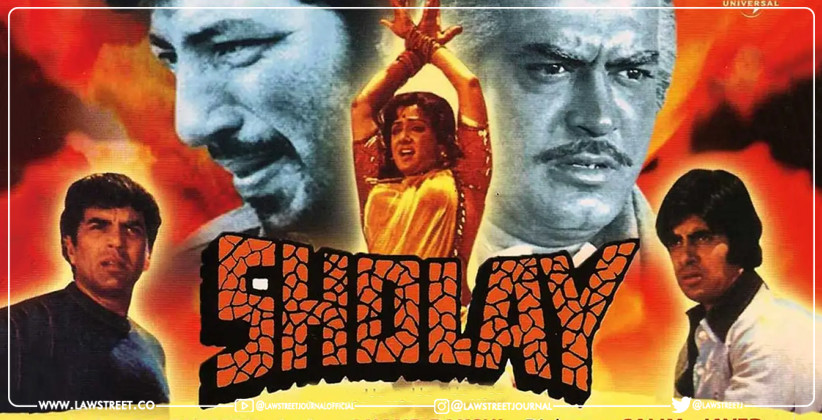Recently in a trademark infringement suit, the Delhi High Court imposed costs and damages of 25 lakh on a website 'Sholay.com' for infringing the trademark of the legendary Amitabh Bachchan starrer, Sholay. (Sholay Media Entertainment & Anr. vs. Yogesh Patel and Ors.)
The Court dismissed the defendant's argument that films cannot be registered under trademark law.
Hon'ble Justice Pratibha M. Singh said that titles of landmark films are entitled to trademark protection because they transcend generations of Indians and include legendary characters, dialogues, settings, and box office collections.
The Court opined that,
"Certain films cross the boundaries of just being ordinary words, and the title of the film SHOLAY is one of them. Titles and films are capable of being recognised under trademark law and in India SHOLAY would be a classic example of such a case."
So, the court prohibited the website from utilising the logo, designs, and selling the 1975 film's DVD.
The Court ordered that,
"The adoption of the mark SHOLAY by the defendants was clearly mala fide and dishonest, owing to the use of the infringing logo, designs, selling of the DVD of the film SHOLAY on the Defendants website, etc. For the reasons contained above, this Court is convinced that this is a fit case for award of costs to the Plaintiffs. Accordingly, the present suit is decreed for a sum of 25,00,000."
The court ordered that the amount be given to the plaintiff within three months, failing which the plaintiff would be permitted to pursue legal remedies for the execution of the decree. Further, the court directed the defendants to refrain from using any variant of the trademark 'Sholay' on the internet or elsewhere, including as a metatag in source code.
Sholay Media Entertainment Pvt. Ltd. filed a trademark infringement suit against a domain name and a magazine for using the film's name in an unauthorised manner and selling film-related products.
Advocates Pravin Anand and Dhruv Anand of the law firm Anand & Anand argued on behalf of the plaintiffs that the defendants had registered the domain name 'sholay.com' and were engaging in infringing actions such as passing off, dilution, and tarnishing of the famous, registered trademark 'Sholay'. In addition to publishing a magazine under the name 'Sholay,' they were also selling merchandise bearing the film's names and scenes.
On the other hand, the defendants contended that 'Sholay.com' is a website utilised by educated people on the internet, resulting in a lower likelihood of confusion. The defendants further claimed that film titles cannot be trademarks and that the plaintiffs' and defendants' goods and services are different, unrelated, and do not overlap.
However, the court dismissed the defendants' claims and said that the internet has become a medium for dissemination, communication, and empowerment of the common man in this day and age. Therefore, the claim that only educated individuals utilise the Internet cannot be accepted.
The Court said that,
"It would be easy for any person, not just educated individuals, to establish a connection between the Plaintiffs film and the Defendants website. The use of identical logos, marks and names originating from the movie SHOLAY further confound the issue."
The Court further reasoned that the goods and services offered on the website may be considered offshoots of the plaintiffs and that film names are very much protected under trademark law.








